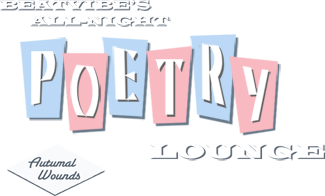
Noted haiku analyst Leslie Mösknvorr interprets "faulty incubations" as a metaphoric indictment of commercial verse. The following excerpts are from her original notes for a lecture she presented at Vestibriüm University (fall colloquium, 2001).
In lines 1 and 2, the "looking glass" dares pretentious writers to examine their own contrived work... Line 3 announces the satire, labeling this exaggerated ... attempt at poetry as a taste of their own medicine, so to speak -- another "dubious fruit." The vines of line 4 are withered from cliché, unable to bear anything fresh; and instead only choke creativity by drowning it in hackneyed expressions (ref: "fragrant blossoms ... purveyed as the white wine of truth and beauty ravaged," 7-18). So "the womb," it seems, is any environment that fosters such banality, with the "impotent seed ejaculated" in lines 14 and 15 suggesting its self-sufficient nature. Line 19 then contends [that such] literary atrocities only lower reader standards by conditioning them to accept the flooded market of ... commercial material (the "swollen reservoirs" of "petty deceit," lines 20 and 21; or the pornographic "filth" of line 19). The second stanza succinctly chronicles the inevitable death of the would-be poet, who -- in a Miltonesque, or perhaps Dantesque fashion -- is hailed to reign supreme, taking their place in "hell's ether."